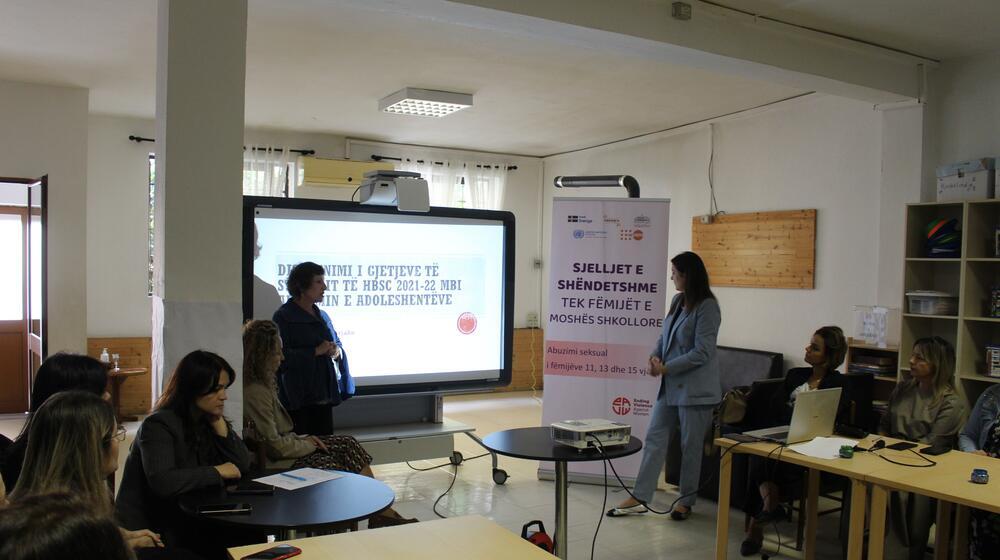The latest statistics from the "Health Behaviour in School-aged Children (HBSC) Report 2021/2022" focus, among other things, on the sexual health of adolescents in Europe, Central Asia, and Canada. Data collection for Albania was carried out by experts from the Faculty of Medicine in collaboration with the Ministry of Education, ASCAP, and WHO, with the support of UNFPA and UNICEF.
Key findings for Albania include HBSC data at the national level:
- 4% of girls and 34% of boys reported having had sexual intercourse (ranking Albania 14th out of 44 countries in Europe).
- Albania ranks 36th out of 42 countries regarding condom use during the last sexual intercourse.
- Albania ranks third out of 42 countries for not using condoms or oral contraceptives during the last sexual intercourse.
- Sexual abuse nationwide has increased from 3.4% (2018) to 3.8% (2022). When viewed at the regional level and compared and separated by region and gender, we see the following overview:
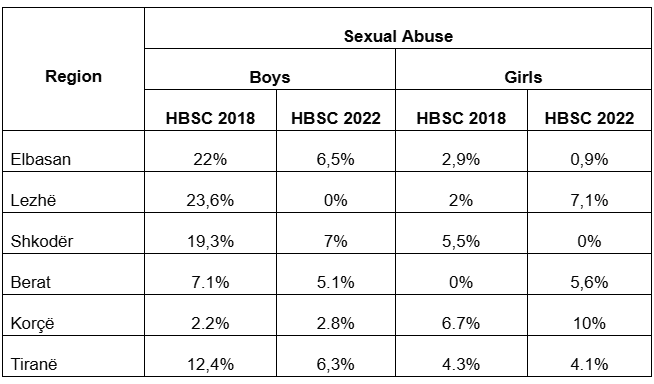
The prevalence of sexual abuse among girls has increased in Berat, Lezha, and Korça.
Based on this data, UNFPA Albania, in collaboration with its implementing partner Nesmark, developed a plan to conduct a more in-depth analysis at the regional level accompanied by information sessions and training in the 12 regions of the country.
During 2024, training is planned to be conducted in 6 regions, namely Elbasan, Tirana, Shkodra, Lezha, Berat, and Korça, while in the other 6 regions it will continue next year.
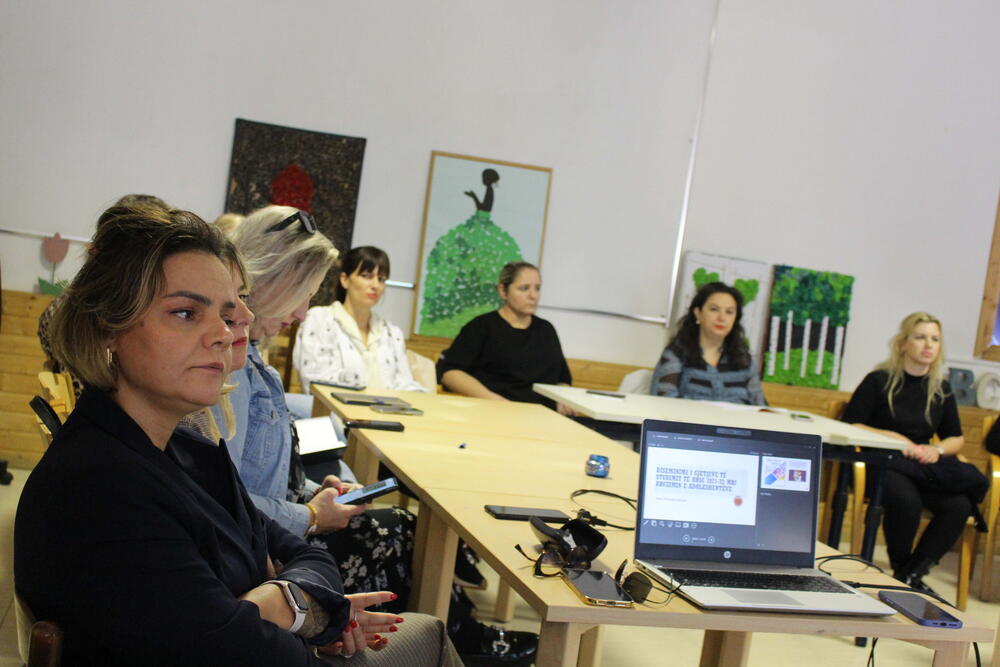
The first session was held in the Municipality of Elbasan, where representatives of various state institutions responsible for the education and protection of children participated and were informed about the figures and findings from the national report and in-depth analyses. They also participated in the discussion table on issues related to the sexual abuse of children and young people, shared their experiences, including the difficulties they encountered during their daily work, and made suggestions to improve interventions and policies.
According to public health expert, Gentjana Qirjako, "the findings of the study emphasize the urgency to strengthen interventions in and out of schools, as well as inter-institutional collaboration, in order to prevent sexual abuse of children and adolescents. Investing in improving the capacities of professionals is a key step in educating our children."
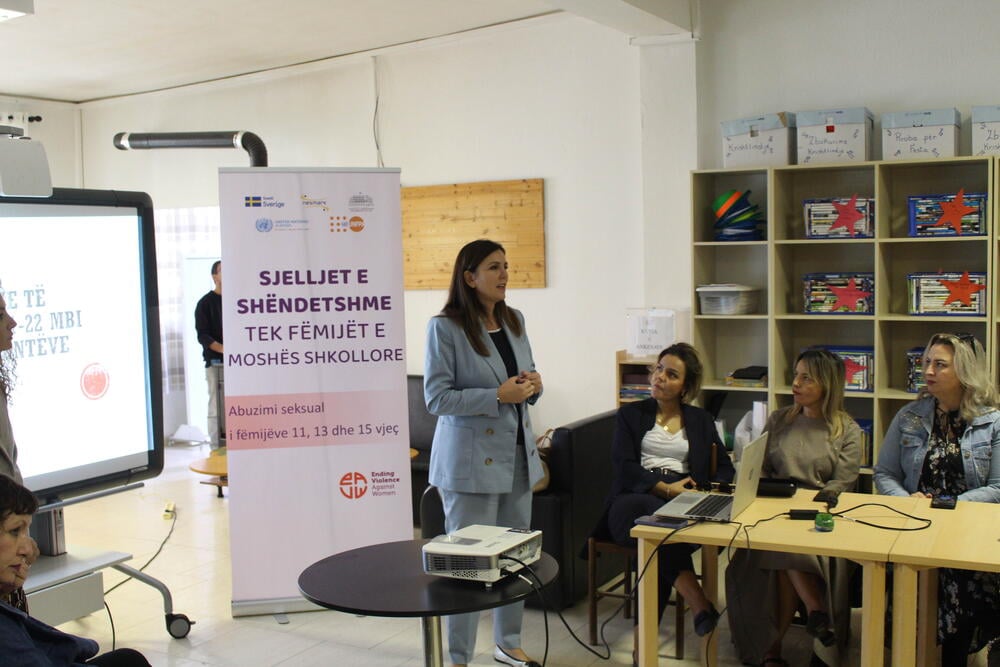
Boys can be sexually abused too.
Nadire Kreka, head of the child protection sector in the Municipality of Elbasan, states that "as much as we need to raise awareness among children, we also need to raise awareness among parents, as they find it difficult to understand that boys can also be sexually abused."
During the training, Kreka brought to attention a case of sexual abuse with a 13-year-old boy: "A parent told me that I have a boy, not a girl, what abuse!"
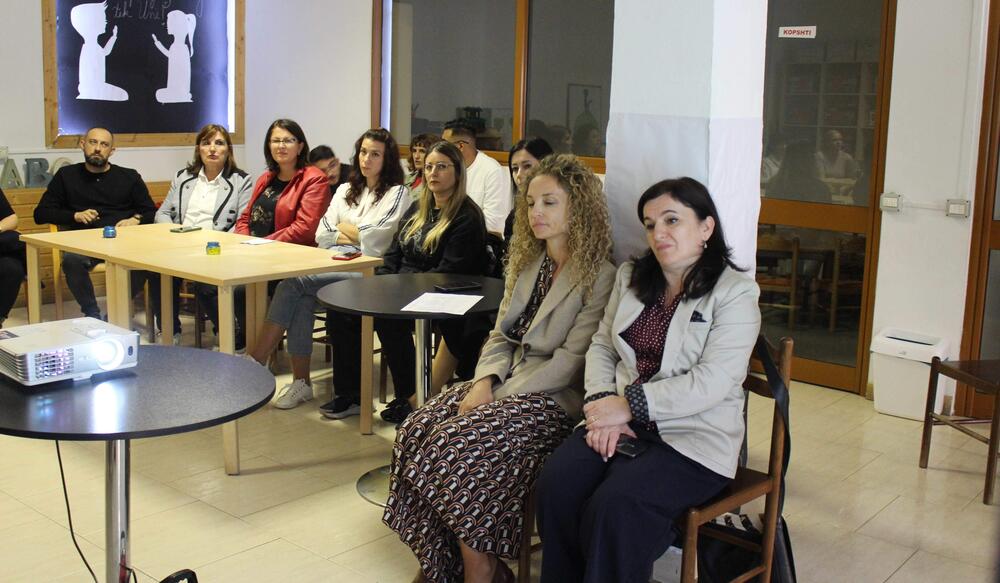
UNFPA's systematic support for the HBSC study in Albania is part of its mandate to promote and improve the health and well-being of young people and to address all forms of gender-based violence. UNFPA works to ensure that adolescents receive training and education on sexual and reproductive health to ensure comprehensive well-being, to establish and offer quality sexual and reproductive health services, with the aim that young men and women have the well-being and opportunities to develop their full potential.
This intervention is implemented within the framework of the United Nations Joint Program in Albania "Ending Violence Against Women", Phase II, funded by the Swedish Government and implemented by UN Women, UNDP and UNFPA in partnership with the Albanian Government.

